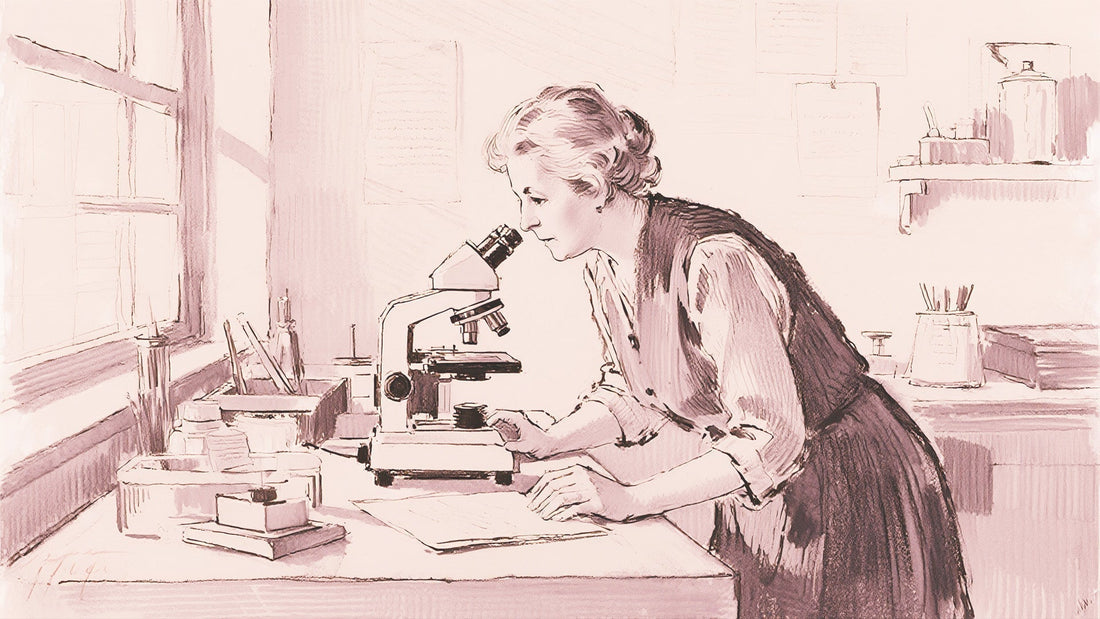
Hidden Figures in Health: The Women Who Changed Our World
Share
On August 26th, we celebrate Women's Equality Day, a moment to honor the long, hard-fought journey toward equal rights. It’s a day to remember the suffragettes who secured the right to vote for American women, a right that laid the foundation for so much more. But true equality isn't just about political power; it’s about recognizing that genius and compassion know no gender. Today, as we reflect on this progress, let's shine a light on some of the women whose brilliance in science and medicine has, for too long, been overshadowed.
These women weren't celebrated on the front pages of newspapers or given grand awards in their time. They worked tirelessly, often in the background, facing skepticism and professional barriers. Yet, their dedication to improving public health and nutrition has saved millions of lives and created a healthier world for us all. Their stories prove that when women are given a seat at the table, society doesn't just progress—it leaps forward.
The Unsung Pioneers of Modern Medicine

Think of the vaccines that have eradicated diseases that once terrorized our communities. While we often celebrate the big names, the real heroes are sometimes found in small labs, far from the spotlight.
In the 1930s, Pearl Kendrick and Grace Eldering were two bacteriologists working at a state lab in Grand Rapids, Michigan. Whooping cough, or pertussis, was a devastating disease, killing thousands of children every year. With limited resources and a burning sense of purpose, Kendrick and Eldering set out to stop it. They didn't just work in a lab; they took their research to the streets. They developed a groundbreaking vaccine and then meticulously conducted door-to-door field trials, tracking its effectiveness on children in their community. Their meticulous work not only created the first effective pertussis vaccine but also paved the way for modern vaccine safety protocols.
They were later joined by Margaret Pittman, a scientist at the National Institutes of Health (NIH). While Kendrick and Eldering had developed the vaccine, Pittman's work was equally critical. She created a standardized mouse potency test to ensure every batch of the vaccine was both safe and effective. Her work established a new global standard for vaccine quality control, a practice that is still in use today. These three women, working together and supporting each other, built the foundation for the lifesaving immunizations that protect our children from pertussis today.
Their story is a powerful reminder that scientific breakthroughs are often the result of collaborative, persistent, and quiet work—work that is so often led by women.
From Observation to Innovation: A New Approach to Public Health

Centuries before modern medicine, another woman changed the course of history through a simple act of observation and courage. In the early 1700s, smallpox was a horrifying plague across Europe. While living in Turkey, Lady Mary Wortley Montagu, an English aristocrat, observed a local practice called "variolation," where people were inoculated with a mild form of the disease to prevent severe illness.
Ignoring the ridicule and resistance from the male-dominated medical establishment, she bravely inoculated her own son and daughter to prove the method's safety. Her unwavering advocacy brought variolation to England and eventually the rest of Europe, saving countless lives and laying the groundwork for Edward Jenner’s later smallpox vaccine. Lady Montagu was not a scientist; she was an advocate, a woman who trusted her own eyes and her own judgment, and she used her privilege to advance a medical practice that would change the world forever.
A New Vision for Community Health

The fight for public health also required pioneers who were willing to get their hands dirty on the front lines. In the early 20th century, New York City was a breeding ground for disease, with infant mortality rates soaring, especially among the poor. Most people believed this was simply an unfortunate reality of city life. But Dr. Sara Josephine Baker, one of the first women to earn a public health degree, refused to accept it.
She didn't just treat the sick; she sought to prevent illness from ever happening. She introduced basic but revolutionary ideas: educating mothers on infant hygiene, teaching young girls to become "Little Mothers" who could care for their siblings, and even dressing her staff in plain clothes to avoid intimidating the families they were trying to help. Her work led to a dramatic drop in infant mortality rates in her district. Dr. Baker also famously tracked down and quarantined "Typhoid Mary," a crucial step in controlling a devastating typhoid outbreak. Her legacy is a testament to the power of proactive, community-based healthcare—a model that still guides public health today.
The Mothers of Modern Epidemiology

Even in the world of data and research, women have been foundational. Dr. Janet Lane-Claypon, a British physician and epidemiologist, is a prime example. In the early 1900s, she conducted groundbreaking case-control studies on breast cancer, linking it to factors like family history and a woman’s age at first birth. She was also a pioneer in research on infant feeding, using rigorous data collection to prove the benefits of breastfeeding. Her meticulous, data-driven approach set the standard for modern epidemiology, the science of how diseases spread.
Her work proves that a different, more holistic perspective can change everything. Without her, we wouldn't have the foundation for understanding how our environment and lifestyle choices impact our health.
A Legacy of Progress for All
These are just a few of the remarkable women who, with little recognition, quietly transformed our world. Their journeys—from the lab to the community, from a diplomat's observation to a rigorous epidemiological study—all point to a single, powerful truth: progress for all is often sparked by the courage and brilliance of those who were once on the margins. Their stories are a testament to how equality is not just a fight for justice, but a powerful engine for a healthier, safer, and more innovative society. As we celebrate these hidden heroes, let us commit to a future where no one’s contributions are ever hidden again.

